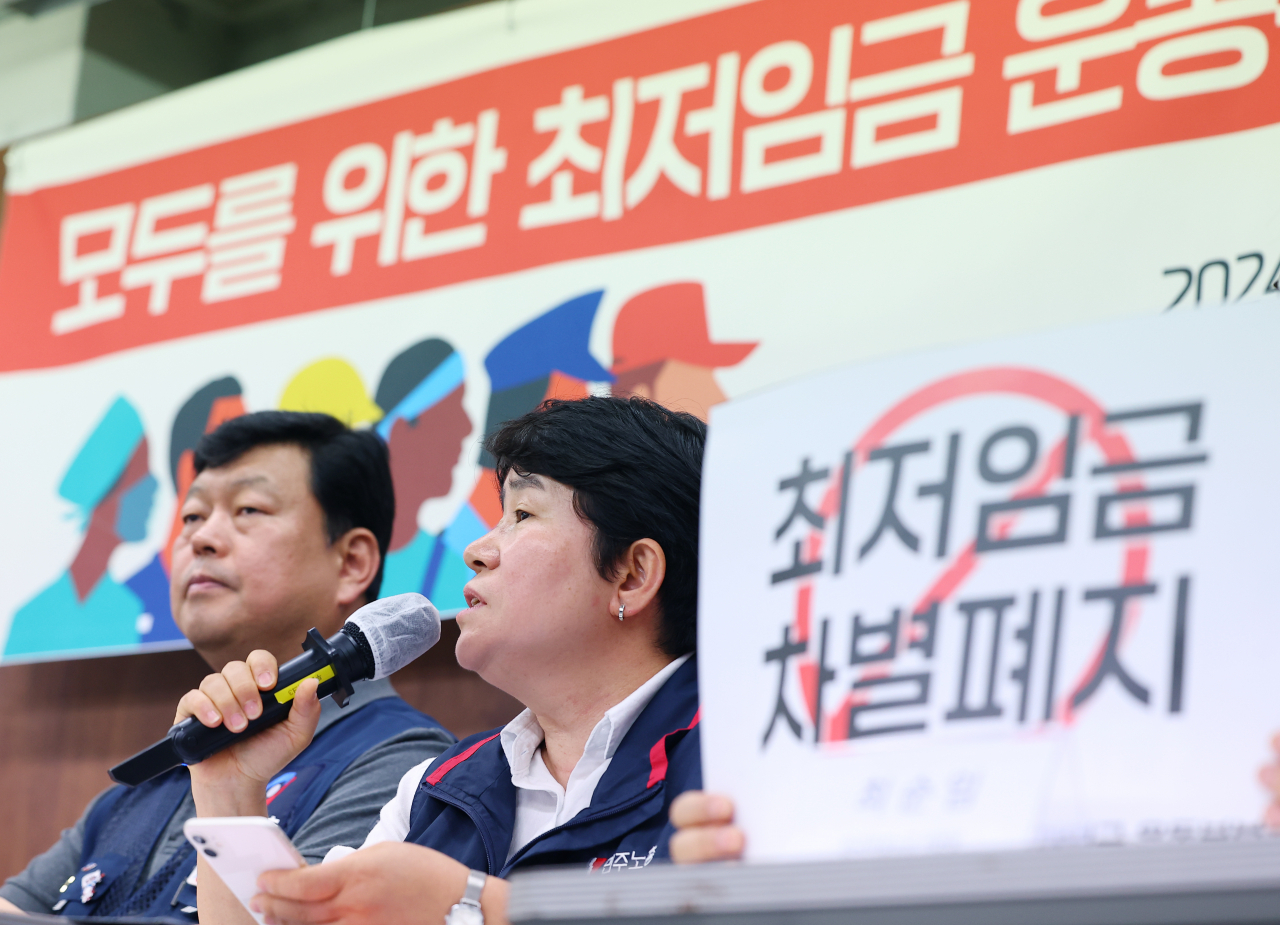Commission set for 1st session to determine 2025 minimum wage
By YonhapPublished : May 21, 2024 - 10:15

The tripartite commission of labor, management and the public launched the process Tuesday to determine next year's minimum wage, with the nation focused on whether it will exceed 10,000 won ($7.35) per hour for the first time.
The 27-member Minimum Wage Commission, with nine representatives from each of the three sides, convened its inaugural meeting this year in the central city of Sejong to review the 2025 hourly minimum wage.
At Tuesday's session, the commission elected Lee In-je, economy professor at Incheon National University, as the chairperson to oversee the subsequent determination process before formally receiving a request from the labor ministry to review next year's minimum wage.
By law, the commission must complete its review within 90 days after receiving such a request, which, in this year's case, falls around late June. However, the annual review process often extends beyond this timeline.
The primary focus of public attention is whether the per-hour minimum wage would surpass the 10,000-won threshold.
For 2024, the minimum wage was set at 9,860 won, marking a 2.5 percent increase from the previous year, which represented the second-slimmest raise on record.
An increase of at least 1.42 percent, or 140 won, would bring next year's minimum wage above the 10,000-won mark.
The commission is expected to face a demand of a significant increase from the labor circle, citing escalating living costs, while management is expected to advocate for a freeze to alleviate cost burdens for small business owners.
Another main focus of contention is whether the minimum wage should be set separately for different sectors to address the unique needs of each sector.
The Korea Enterprises Federation, representing the business community, has highlighted the necessity of differentiated minimum wages for various industries in its recent report, citing different management environments for them.
The labor circle vehemently resists, arguing that it would run counter to the purpose of a minimum wage and amount to stigmatizing certain business sectors.
In March, the Bank of Korea proposed adopting a lower-than-universal minimum wage for the caregiving industry to address labor shortages in the sector.
In a press conference ahead of the commission session, Jeon Ji-hyun, chairperson of a labor union of caregiver workers, voiced the industry's stiff objection to the idea, arguing that "it would amount to discrimination through a lower wage and denigration of the profession's value." (Yonhap)



















![[Today’s K-pop] Treasure to publish magazine for debut anniversary](http://res.heraldm.com/phpwas/restmb_idxmake.php?idx=642&simg=/content/image/2024/07/26/20240726050551_0.jpg&u=)